Explore the dynamic world of Open Educational Resources and discover how OER Africa is driving the movement forward. This page is divided into two sections:
Articles: Our articles aim to deliver insights on OER-related themes that inform, spark conversation, and engage with the developing open education landscape, with a particular focus on Africa.
Updates: Below, the articles, you'll find updates on OER Africa’s latest initiatives, activities, and contributions to the OER community.
Articles
This section features targeted articles crafted specifically for educators, students, and the global Open Educational Resources (OER) community. The articles examine themes related to OER, offering insightful perspectives and information. The content seeks to inform, prompt discussion, and actively engage with the dynamic landscape of open education, particularly within the African context.

14 January 2026
As we turn our focus to 2026, OER Africa reflects on a year marked by growth and deepening partnerships across the continent. Our work has continued to champion open educational practices and strengthen the capacity of African institutions to engage meaningfully in the global open education movement.
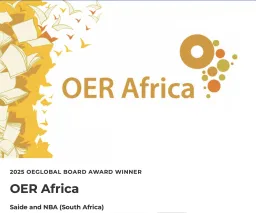
23 October 2025
Open Education Global has recognised OER Africa’s outstanding work in advancing Open Education and awarded it OEGlobal Board Award for Organizational Leadership. The Award was specifically for Organizational Leadership. We are proud to be recipients of this prestigious Award and for the listing of OER Africa on the pages of 2025 Board Award Winners

22 October 2025
In early 2025, OER Africa launched the Continuing Professional Development (CPD) Network, an initiative designed to connect higher education institutions across southern Africa in a shared effort to strengthen professional development for academic staff. Since its inception, the Network has convened seven times, bringing together representatives from five institutions.
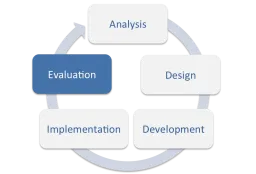
24 September 2025
As African universities increasingly adopt Open Educational Resources (OER), the need for robust monitoring and evaluation (M&E) has never been greater. Effective M&E enables institutions to track progress, demonstrate impact, and ensure that OER initiatives genuinely advance access, equity, and quality in education. This communication explores practical approaches to monitoring and evaluating the implementation of OER at Universities.
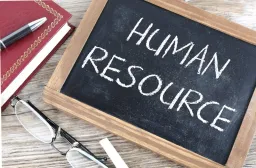
12 August 2025
OER Africa has developed a Toolkit for Developing Human Resources Policies and Supportive Institutional Environments in Higher Education, which provides a comprehensive, practical guide for higher education institutions to assess, improve, or establish effective HR policies and practices. It is positioned as an Open Education Resource (OER) and contributes to OER Africa’s broader mission to support sustainable education systems in Africa by empowering institutions to improve staff capacity, enhance organisational effectiveness, and create environments conducive to the adoption and integration of OER. It offers detailed guidance on core HR domains, including conditions of service, staff development, performance management, promotion, and codes of conduct, along with templates and openly licensed resources to facilitate policy development and implementation. It focuses particularly on helping institutions determine which HR processes and policies should be in place to support individuals within the work environment.
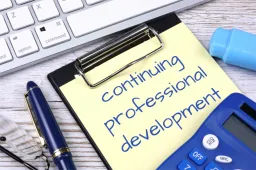
29 July 2025
There is strong evidence that professional development is more effective when it is intentionally planned by higher education institutions (Özgenel et al. 2024; Solomon et al. 2023). OER Africa has developed two frameworks for continuous professional development (CPD): one for academics and one for academic and research librarians. The purpose of the frameworks is to capacitate higher education professionals to work innovatively in the modern world by making use of affordances such as open educational resources (OER), open pedagogies and digital technologies. An institution, faculty, department or individual can decide on current needs and use the framework to structure and implement a flexible professional development plan.
Displaying 1 - 6 of 69
Updates
This section provides updates on OER Africa’s initiatives and activities. Stay informed about our contributions to the OER community and how we are driving the open education movement forward.
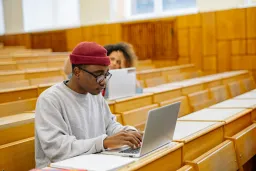
03 March 2026
On 9 March 2026 from 18:00 – 20:00, the University of the Free State will host a compelling public lecture titled 'Assessment After ChatGPT: A Practical Integrity Framework for Schools and Universities.' The event will also include a hybrid component, extending participation beyond the physical venue.

25 February 2026
From 2nd to 6th March 2026, the global open education community comes together for Open Education Week (OE Week), an annual celebration spotlighting the power of openness. As part of this global celebration, the 2026 Open Education Week Virtual Summit – hosted by the African Library and Information Associations and Institutions (AfLIA) in partnership with OER Africa – will take place online on 3rd and 4th March 2026 under the theme Open Education, Open Possibilities.

10 February 2026
OER Africa’s Open Education Tutorials are short, practical, and engaging learning modules designed to support continuous professional development for anyone interested in open education. Whether you’re new to Open Educational Resources or are looking to deepen your practice, these tutorials provide clear guidance that you can apply immediately.

03 December 2025
It is with deep sorrow and profound shock that we announce the untimely passing of Dr Jennifer Anne Glennie on 2 December 2025.
Jenny, as she was affectionately known, was not only the long serving Founding Executive Director of Saide but also its heart and soul for over three decades.
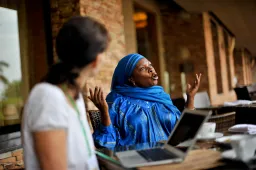
26 November 2025
The value of OER in improving the quality of teaching and learning cannot be overemphasised, particularly in African environments. To mainstream OER, institutions should not only consume but also create, adapt, and share OER. This shift enables African educators both to use OER created elsewhere and have ready access to resources they create or adapt, which could be more suitable for their contexts.
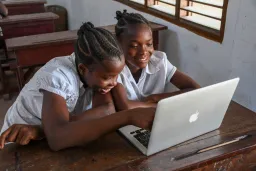
26 August 2025
UNESCO's flagship Digital Learning Week 2025 takes place at UNESCO Headquarters in Paris. This year's event, themed "AI and the future of education: Disruptions, dilemmas and directions", will bring together over 1,000 participants including 30 Ministers of Education, digital education leaders, policy-makers, researchers, and practitioners from around the globe.
Displaying 1 - 6 of 60
